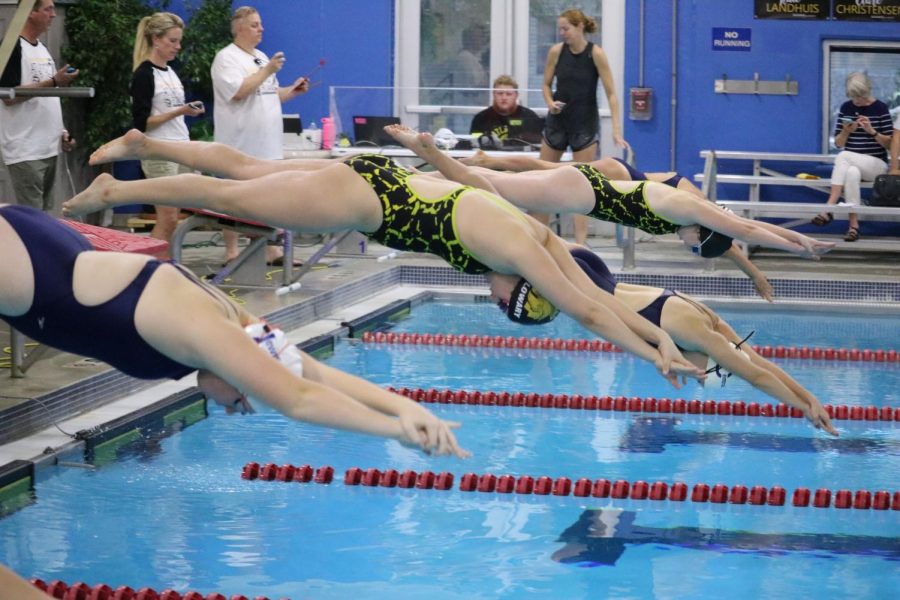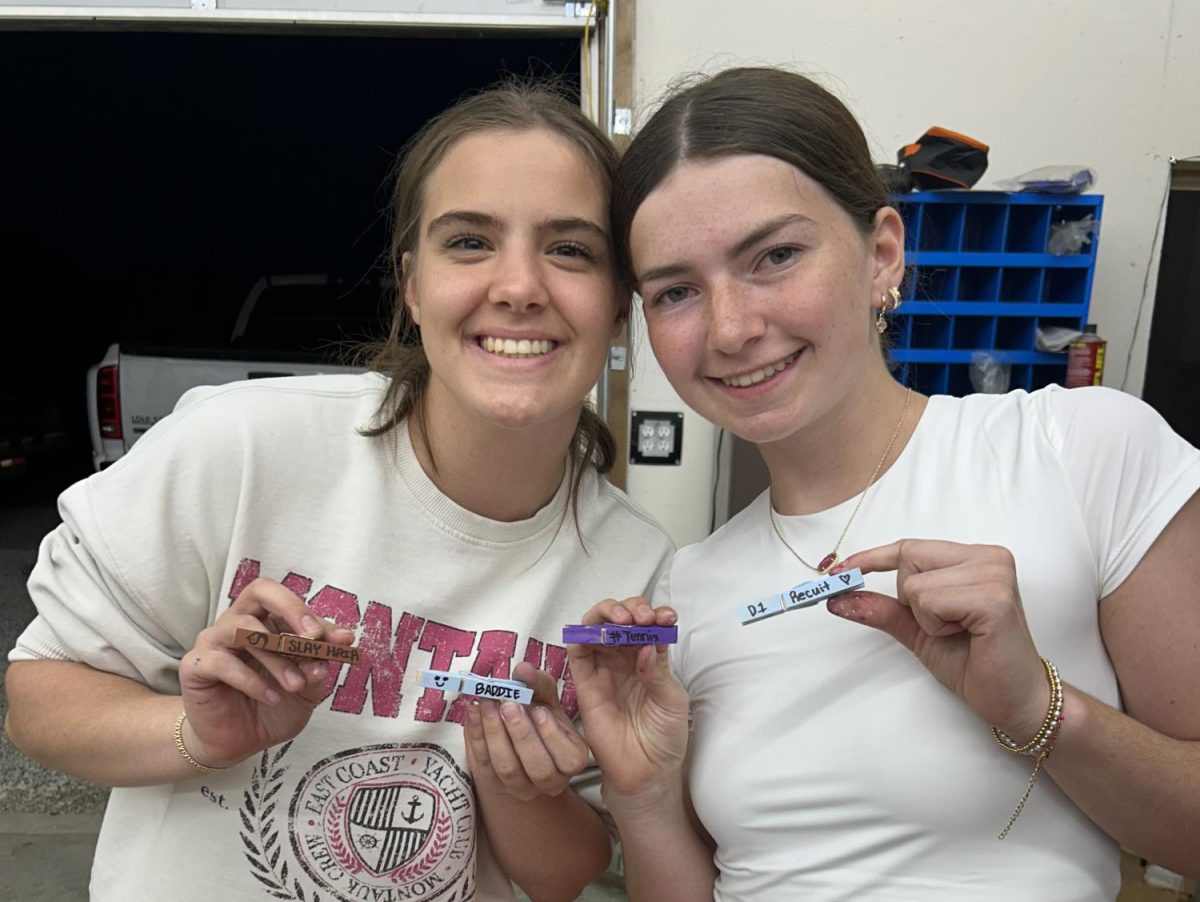The Life of a Trojan Swimmer
With two-a-day practices and grueling competition, swimmers on the Atlantic swim team put in blood, sweat, and tears year-round.
Members of the Atlantic swim team dive into the pool on Tuesday against Lewis Central. Practices and home competitions are held at the Nishna Valley YMCA.
September 25, 2019
Swimming is an activity enjoyed by people from all walks of life, whether it be for exercise, sport or entertainment. Debatably, the people who spend the most time in the pool are on the Atlantic swim team, as they wake up for 6 a.m. practice and then go straight to practice after school at 3:30 p.m.
Both the boys and girls swim team work all year round, alternating practice times between each other. The girls swim team season begins in August and ends in November, while the boys swim season starts in November and ends in February.
The group has made a lot of progress over the years, but there hasn’t always been a high school swim team. They weren’t able to establish a high school swim team until there were enough high school swimmers. The group started as a self-funded program, and still operate as so. The swim team has built their reputation and earned recognition over the years by improving their skills all year round. “People didn’t even know we swam before,” senior Erin Barrick said. “They didn’t know we did anything.” In the time she’s been in high school, they sent six girls to state her freshman year, six girls her sophomore year, and six girls her junior year. “I don’t know how many will go this year, but we’ll try hard,” Barrick said. In addition to other improvements the team has made, Barrick added how the Atlantic swim program is more recognizable because of the success they’ve attained. “We know what we’re doing now,” she said.
Although not everyone on the swim team could be considered a morning person, they have to wake up early anyway for 6 a.m. practices Monday through Friday. Erin Barrick has been participating and competing on the Atlantic swim team since the beginning, this being her tenth year. Barrick said although she’s been apart of the team for so long, she has yet to become accustomed to waking up early for practice. To help with this, Barrick “always” goes to bed early “no matter what.” Getting to bed early is especially important to her during the swim season so she’s prepared in the mornings, and not “grouchy.” Barrick said, “even if I have homework, I make sure I get to bed by ten,” so that she’s able to wake up at 5:20 a.m. for practice at 6:00 a.m.
Morning practices are an hour long, and consist of swimming a total of between 3,000 and 3,500 yards. Afternoon practices range from an hour to an hour and a half in duration. The girls start off lifting weights for fifteen minutes and then swim an additional 4,000 to 4,500 yards. Barrick said the environment between morning and afternoon practices differ drastically. In the morning “it’s dead silent because everyone’s tired,” but in the afternoon “we’re more awake after having spent a whole day at school.” For the most part, there’s no practice on the weekends unless they’re preparing for regionals or state competition. Otherwise, they have about ten competitions before state, falling both on the weekends and weekdays.

Sophomore Ava Bruckner and junior Bryer Rose smile for the camera. Both girls have been on the swim team all of their high-school careers, spending time in and out of the pool with their teammates.
While being apart of the swim team brings many challenges, Barrick said it’s worth it. “It’s very mentally exhausting, but you just gotta keep swimming.” Her teammates are a big part of what encourages her to keep going. She explained that everyone on the team is very close-knit, which has helped to build a positive environment. “We just have a lot of fun,” Barrick said. This makes waking up early, having practice twice a day, and dedicating most of their time in the pool during the swim season much more “bearable.”










